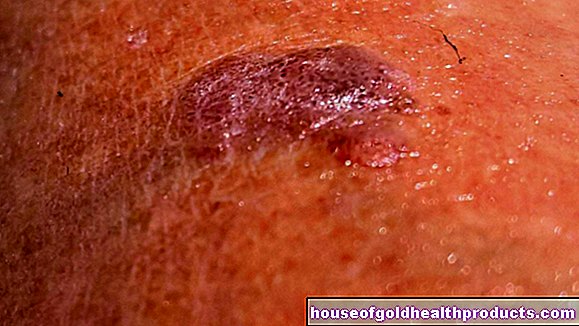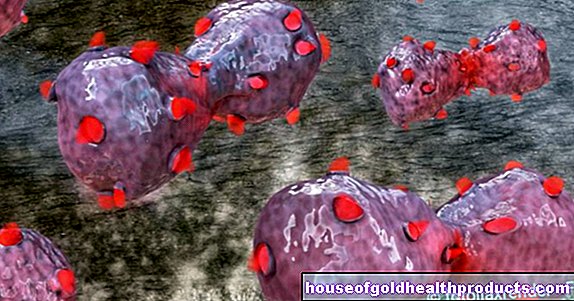Allergies could protect against skin cancer
Christiane Fux studied journalism and psychology in Hamburg. The experienced medical editor has been writing magazine articles, news and factual texts on all conceivable health topics since 2001. In addition to her work for, Christiane Fux is also active in prose. Her first crime novel was published in 2012, and she also writes, designs and publishes her own crime plays.
More posts by Christiane Fux All content is checked by medical journalists.Whether against house dust, pollen or certain foods: allergies are annoying companions. For all those afflicted, science now has a little consolation ready: Allergies could offer protection against skin cancer.
Immunoglobulin E (IgE) plays a key role in this. This molecule is part of the immune system. Among other things, it triggers allergic reactions. These are defense reactions that are normally directed against harmful intruders, but in the case of an allergy to harmless substances, they jump into action. The skin reddens, mucous membranes swell and in serious cases even the airways.
What is the role of IgE?
Researchers have long puzzled over the actual role of IgE in the body. Among other things, it was assumed that it serves to ward off parasites. Because fewer and fewer people in the industrialized world get sick with worm infections and the like, IgE is under-challenged and then reacts to harmless substances, according to the hypothesis. However, the fact that the body can fight parasites without IgE speaks against this.
"At least that may not be IgE's only job," explains Dr. Jessica Strid from Imperial Colleague London. “It must also have other important tasks.” The scientist and her colleagues have now discovered that the immunoglobulin could play a central role in the defense against harmful environmental chemicals.
Environmental toxins call IgE on the scene
In experiments with mice, the researchers found that IgE accumulates in skin regions that had come into contact with environmental toxins. There, IgE prevented cell damage - which can otherwise degenerate into malignant tumors, for example. The same thing happened when the animals' skin was damaged by too much UV light.
In twelve patients with basal cell carcinoma - a special form of white skin cancer - all samples of the tumors contained IgE. However, the researchers found a particularly large amount of IgE in those ulcers that were less aggressive. IgE can therefore not only prevent cells from degenerating, but also slow down tumor growth.
“Our next step will be to find out how exactly IgE prevents skin cells from degenerating,” says Strid. "We also want to try to manipulate the allergic response in such a way that it protects against cancer or can help in curing skin cancer."
Allergies on the rise
The connection between environmental toxins and IgE could also provide an explanation for the fact that allergies have gained ground so rapidly in industrialized nations over the past few decades. Relevant environmental toxins include air pollution from traffic, agriculture and industry, but also cigarette smoke.
Tags: fitness hospital first aid





























